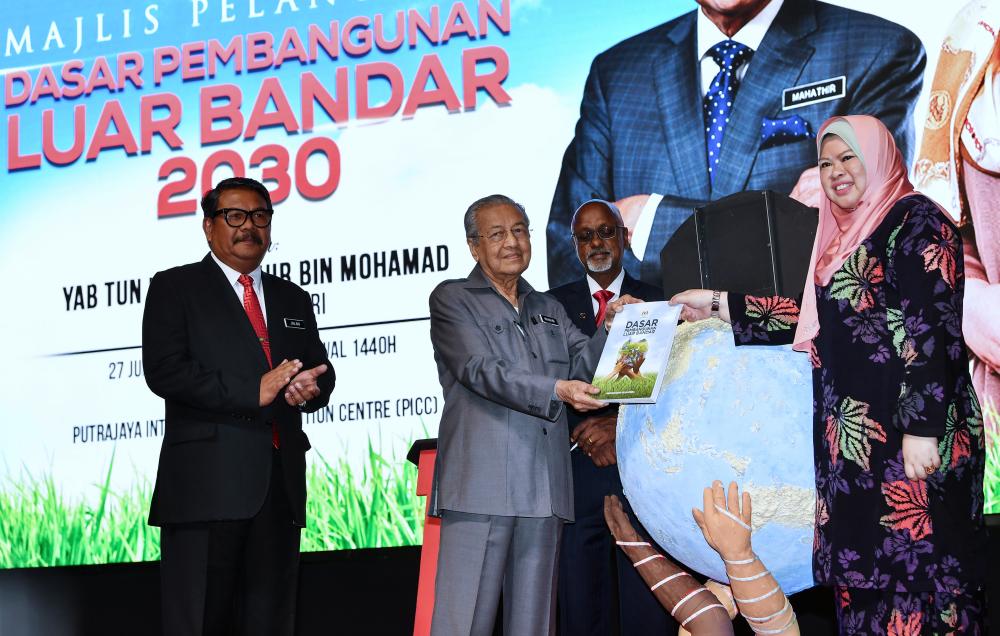PUTRAJAYA: The Rural Development Policy (DPLB) launched today will transform rural areas into attractive areas which are conducive to live, work and invest in, as well as close the disparity gap in development between people living in urban, rural and regional areas.
Launched by Prime Minister Tun Dr Mahathir Mohamad, the DPLB provides the outline on rural development in Malaysia which would help transform the country into a developed and high-income nation by 2025.
In her speech at the launch of the DPLB, Rural Development Minister Datuk Seri Rina Harun said the policy outlined 10 thrusts, 33 policy statements and 88 strategies which will be implemented until 2030.
She said the 10 thrusts were economics, entrepreneurship, human capital, infrastructure, youth, women, rural life, delivery and management systems, biodiversity and housing.
Rina said from the engagement sessions which were held, the ministry gathered more than 1,000 aspirations of the rural communities for the next 10 years.
“These aspirations cover various areas including infrastructural amenities, education opportunities, quality of life, management and leadership, environment and statehood,” she said.
She said the DPLB will strive towards the vision of ‘Luar Bandar Sejahtera’ (Prosperous Rurals) regardless of race, religion, social status, gender and community.
Rina said several programmes had been initiated to help achieve the vision of Prosperous Rurals including the Desa Harapan (Village of Hope) programme, which is a joint venture with the private sector to develop a village economically, entrepreneurship, human capital and environment.
She added that a new Kemas education module was also being drawn up, in keeping with present-day demands on early childhood education.
“For infrastructure, the ministry is drawing up various private funded initiatives which would speed up the implementation of key infrastructure projects to meet the needs of villages throughout the country by 2030,” she said.
Rina said the ministry was planning information sessions on the DPLB to the relevant implementors.
“This is to give them an insight into the strategies and measures in the DPLB and to ensure that the policy is carried out effectively and in an organised manner.” - Bernama










